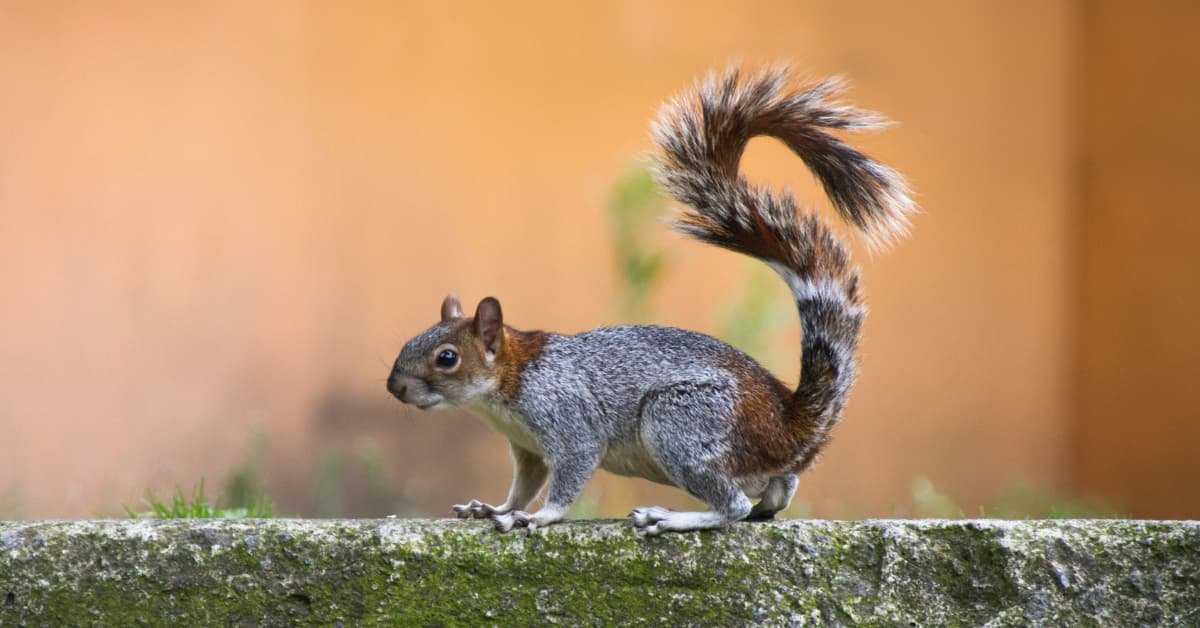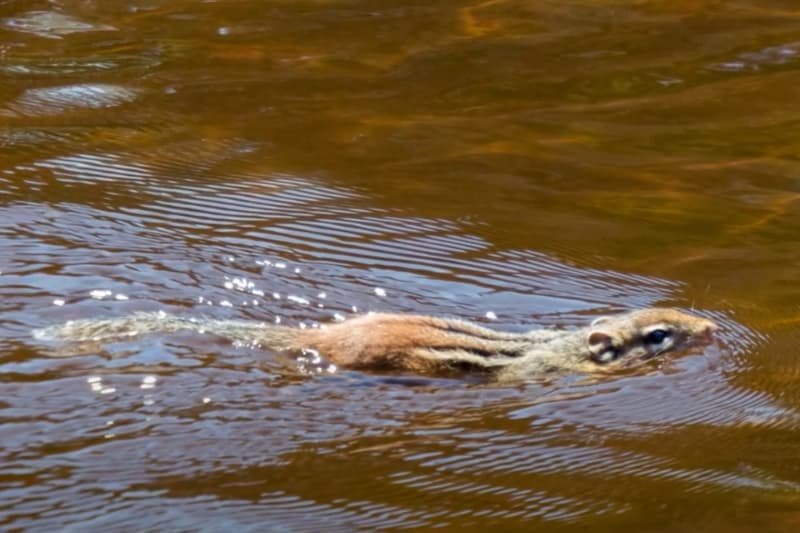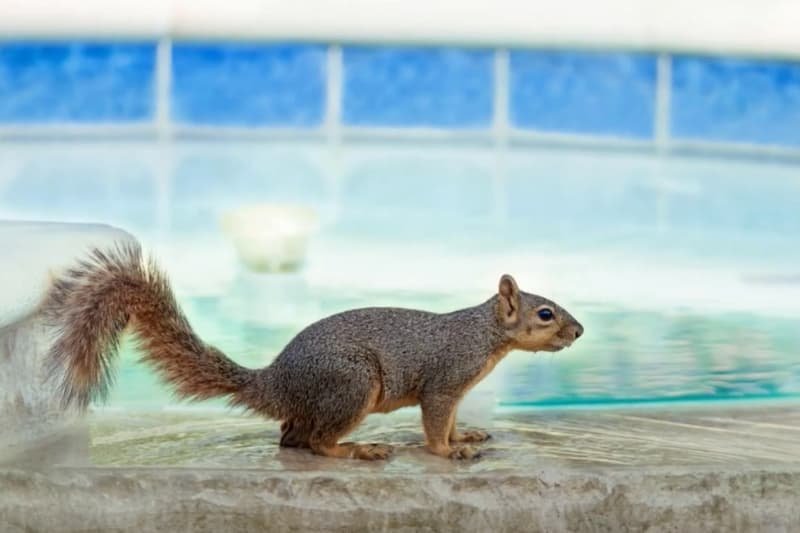
When we think of animals that are skilled swimmers, squirrels may not be the first creatures that come to mind. We often picture them scurrying up trees, gathering nuts, or leaping from branch to branch. However, have you ever wondered if squirrels can actually swim? In this article, we will dive into the world of squirrels and explore their surprising aquatic abilities. We will also discuss why squirrels swim, how to prevent them from swimming in your pool, and what to do if a squirrel finds itself in your pool.
Can Squirrels Swim?

Yes, squirrels can swim. While squirrels are not great swimmers like ducks or fish, squirrels can doggy paddle through the water for short distances when necessary. Their swimming skills may not be as refined as those of other animals, but they can still manage to stay afloat and make their way across a body of water.
Why do Squirrels Swim?
There are several reasons why squirrels might take to the water:
Escaping Danger or Predators: When faced with danger or the pursuit of a predator, squirrels may choose to swim to escape. The water provides a temporary refuge where they can elude their would-be attackers.
Finding Food or Shelter: Squirrels are resourceful creatures, and they may swim to reach food sources or find shelter. If they spot a desirable food item on the other side of a stream or body of water, they will not hesitate to take a dip and paddle across to satisfy their hunger.
Exploration and territory expansion: Swimming allows squirrels to explore new areas, expand their territories, and potentially find better resources or nesting sites.
Migration and dispersal: Some squirrel species engage in seasonal migrations or dispersal, and swimming can be a method for them to traverse rivers or other water barriers during these movements.
Water as a natural habitat: Certain squirrel species, like the semiaquatic water squirrels, have adapted to a lifestyle closely associated with water and rely on aquatic environments for their survival.
The Risks and Dangers of Squirrels Swimming
While squirrels like water and are capable of swimming, it’s crucial for us to take steps to protect them from unnecessary dangers. Here are some measures we can take:
Drowning:
One of the primary dangers that squirrels face when swimming is the risk of drowning. Despite their best efforts, squirrels may find themselves overwhelmed by the water’s depth or exhausted from the physical exertion required to stay afloat. If they are unable to find a way out or become trapped in a confined space, they may drown.
Predators in the Water:
Squirrels must also contend with the presence of predators in aquatic environments. While squirrels are agile animals and quick on land, they are more vulnerable in the water. Predators such as snakes, alligators, or larger aquatic mammals can pose a significant threat to squirrels when they enter their territory. These predators may view swimming squirrels as easy targets, leading to potential attacks and fatal consequences.
Hypothermia in Cold Water:
Squirrels are land-dwelling creatures, and their bodies are not well-adapted to withstand cold water for extended periods. When squirrels swim in frigid temperatures, they are at risk of developing hypothermia. Prolonged exposure to cold water can lower their body temperature, leading to a loss of coordination, fatigue, and even organ failure. This makes it vital for squirrels to find a way out of cold water as quickly as possible to avoid these life-threatening conditions.
How To Prevent Squirrels From Swimming in Your Pool:

If you have a pool in your backyard, you may encounter squirrels taking an unplanned dip. Here are some tips to prevent squirrels from swimming in your pool:
- Install a Pool Cover: A pool cover is an effective way to keep squirrels out of the water. Make sure the cover is secure and fits tightly, leaving no gaps for squirrels to slip through.
- Trim Overhanging Branches: Squirrels are agile climbers and can access your pool by leaping from nearby trees. By trimming overhanging branches, you create a barrier that makes it more difficult for squirrels to reach your pool.
- Use Squirrel Deterrents: There are various squirrel deterrents available on the market, such as motion-activated sprinklers or ultrasonic devices, that can discourage squirrels from approaching your pool area.
What to do If a Squirrel Falls into Your Pool:
Despite your best efforts, you may encounter a squirrel in your pool. If this happens, here’s what you can do:
- Don’t panic: Squirrels are resourceful and can swim on their own. Most squirrels will be able to find their way out of the pool by using their swimming skills.
- Provide an Exit Ramp: Place a sturdy ramp or a floating object such as a pool noodle near the edge of the pool. This will give the squirrel a way to climb out of the water and reach safety.
- Offer help if necessary: If the squirrel appears distressed or unable to get out of the pool, you can gently use a pool skimmer or a long object to guide it toward the ramp or edge of the pool. Be careful not to harm or startle the squirrel while doing so.
Conclusion:
Squirrels may not be the most graceful swimmers, but they possess the remarkable ability to swim when needed. Whether it’s to escape danger, find food or shelter, or explore their surroundings, squirrels have adapted to use water as an additional resource in their lives. While squirrels are not known for their swimming, they can still paddle their way across bodies of water using their agile bodies and their tail as a rudder.
FAQs:
Can squirrels swim?
Yes, squirrels can swim. While they are primarily known for their climbing and jumping abilities, squirrels have adapted to swim when necessary.
How do squirrels swim?
They use their hind legs to paddle and push themselves forward, similar to how they use their legs for climbing trees. Squirrels also use their long, bushy tails as a rudder and for balance, which helps them maintain stability in the water.
Why do squirrels swim?
Squirrels swim for various reasons. Squirrels may leap into the water and swim away to evade threats that pursue them on land. Furthermore, squirrels may swim to find alternative food sources, such as aquatic plants or insects found near the water’s edge, expanding their foraging opportunities.
Are all squirrel species able to swim?
Most squirrel species are able to swim, although their swimming skills may vary to some extent. Tree squirrels, ground squirrels, and flying squirrels have been observed swimming when the need arises. Some squirrels may display more adept swimming techniques, while others may exhibit less confidence in the water.



